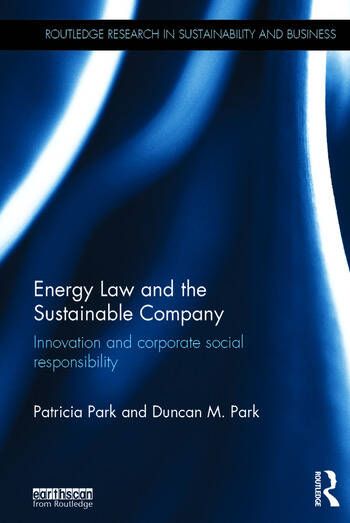
What kind of decision-making should multinationals engage in to create a sustainable company? There is substantial debate over why CEOs, senior management and Boards of Directors make the wrong decisions by not asking the right questions, with the result that not only is the company itself damaged, but all of the stakeholders find themselves at a detriment.
Focusing on innovation, technology transfer and the use of intangible assets, Energy Law and the Sustainable Company features case studies from the oil and gas sector, to illustrate how to develop a sustainable business. Considering corporate social responsibility from the perspective of international and national law, the book demonstrates how companies can be both profitable and ethical using the influences of psychology to encourage senior decision makers to make the right decisions. It was revealed that reputation was the main principle influencing decision-making. The book also discusses how companies have reported on their sustainability strategy and considers how technology transfer and intangible assets may play a part in addressing global sustainability.<>
This book should be invaluable reading to students and scholars of Sustainable Business, Business Law, Corporate Social Responsibility, Environmental and Energy Law as well as Environmental and Energy Management.